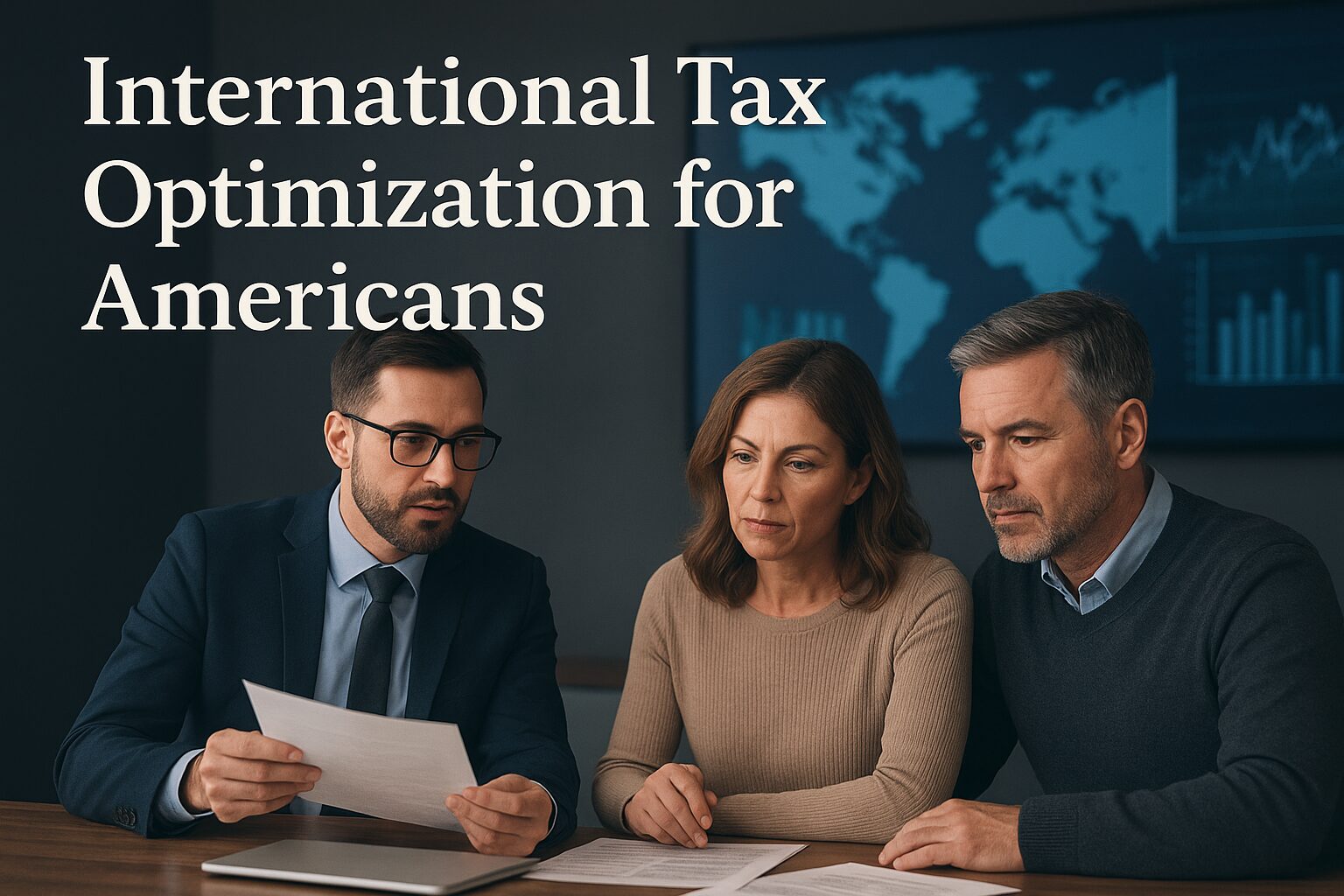Why Global Tax Planning Is Critical for U.S. Citizens
U.S. citizens are taxed on their worldwide income, regardless of where they live. This unique system means that even if you earn money abroad, the IRS still expects its share. For high-net-worth individuals, entrepreneurs, and global investors, this can result in significant tax exposure.
International tax optimization is not about hiding assets or avoiding legal obligations. Instead, it’s about leveraging existing laws, tax treaties, and global financial structures to minimize the total tax burden legally. The right strategy can save millions over a lifetime, while ensuring full compliance with U.S. tax regulations.
Understanding the U.S. Tax System for International Income
The U.S. uses a citizenship-based taxation system, meaning all citizens and green card holders are liable for U.S. taxes on worldwide income. Key considerations include:
- Foreign Earned Income Exclusion (FEIE) – Allows qualifying taxpayers to exclude a certain amount of foreign income ($126,500 in 2024) if they meet residency or physical presence tests.
- Foreign Tax Credit (FTC) – Reduces U.S. tax liability by the amount of foreign taxes paid.
- Tax Treaties – Agreements with other countries that prevent double taxation and clarify tax obligations.
Legal Strategies for International Tax Optimization
1. Leverage the Foreign Earned Income Exclusion (FEIE)
For Americans living abroad, the FEIE is one of the most powerful tools. By meeting either:
- Bona Fide Residency Test
- Physical Presence Test (330 days abroad)
You can exclude a large portion of your foreign-earned income from U.S. taxation.
2. Maximize the Foreign Tax Credit (FTC)
If you pay taxes to a foreign government, you can claim a dollar-for-dollar credit against your U.S. tax liability, preventing double taxation.
3. Use Tax Treaties to Your Advantage
Tax treaties can:
- Reduce or eliminate withholding taxes on dividends, interest, and royalties.
- Offer residency tie-breaker rules to avoid dual taxation.
4. Structure Income Through Offshore Corporations
Properly established foreign corporations can defer certain types of income taxation until profits are repatriated, though recent tax reforms (GILTI rules) have reduced some benefits.
5. Set Up Offshore Trusts for Asset Protection and Tax Efficiency
Offshore trusts can provide long-term wealth preservation, multi-generational planning, and potential tax advantages under certain treaty frameworks.
Example: How a U.S. Expat Reduced Taxes by 60%
A high-net-worth American living in Singapore earns $500,000 annually from consulting. By:
- Qualifying for the FEIE
- Claiming the FTC for taxes paid in Singapore
- Investing through a Singapore-based retirement plan
They reduced their U.S. tax liability by approximately 60% while staying fully compliant.
Compliance Is Non-Negotiable
The IRS closely monitors foreign accounts through:
- FATCA – Requires foreign banks to report U.S. account holders.
- FBAR – Mandatory for Americans with over $10,000 in foreign accounts.
- Form 8938 – Declaration of specified foreign financial assets.
Penalties for non-compliance can be severe, reaching tens or hundreds of thousands of dollars.
Countries with the Best Tax Opportunities for Americans
- Portugal – NHR program offers tax breaks for 10 years.
- United Arab Emirates – No personal income tax, strategic business hub.
- Singapore – Low tax rates, strong financial system.
- Panama – Friendly territorial tax system.
- Malta – Favorable treaties with the U.S. and EU access.
Step-by-Step Tax Optimization Plan
- Audit Your Current Tax Exposure – Understand where you are paying and why.
- Choose the Right Residency – Select a country with beneficial treaties or tax laws.
- Restructure Your Income – Separate active, passive, and investment income streams.
- Leverage Exclusions & Credits – FEIE, FTC, treaty benefits.
- Work With Cross-Border Specialists – Avoid costly mistakes.
Risks to Consider
- Changing Laws – Tax benefits can disappear overnight if regulations change.
- Residency Rules – Misunderstanding them can trigger unexpected taxation.
- Currency Risk – Income in foreign currencies can fluctuate in value.
FAQ – International Tax Optimization
Q1: Can I completely avoid U.S. taxes if I move abroad?
No. U.S. citizens owe taxes on worldwide income, but legal strategies can minimize them.
Q2: Do all countries have tax treaties with the U.S.?
No. Some countries, like Hong Kong, do not have treaties, requiring alternative strategies.
Q3: How often should I review my international tax strategy?
Annually, or whenever there are major changes in your income or residency.
Conclusion
International tax optimization is a legitimate, high-value strategy for Americans seeking to minimize their global tax burden. With the right plan, you can reduce taxes, protect assets, and ensure compliance – positioning yourself for long-term financial success.
📌 Next Article Preview:
In our next post, we’ll explore Asset Protection Trusts Explained – Secure Your Wealth from Lawsuits and Creditors, revealing how trusts safeguard assets for high-net-worth individuals.
